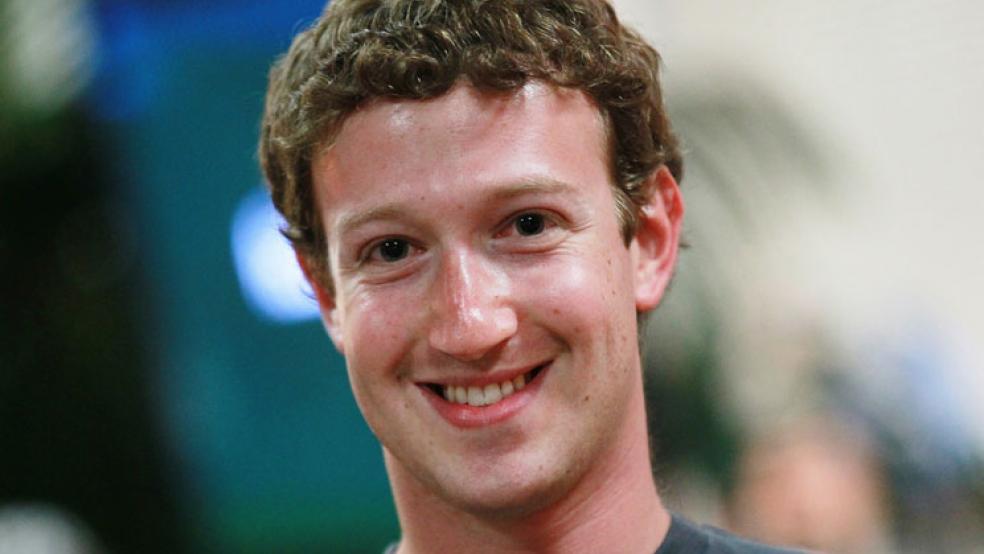Mark Zuckerberg addressed the $19 billion question Monday. That astonishing sum, of course, is the total price Facebook agreed to pay for messaging service WhatsApp and its rapidly growing base of 450 million users. It includes $12 billion in Facebook stock, $4 billion in cash and some $3 billion in restricted stock grants that vest over four years. The Facebook CEO, in the keynote interview at the Mobile World Congress in Barcelona, called it a bargain.
“I actually just think that, by itself, it’s worth more than $19 billion,” he said. “It’s hard to exactly make that case today because they have so little revenue compared to that number, but the reality is there are very few services that reach a billion people in the world, they’re all incredibly valuable – much more valuable than that.”
Related: Facebook and WhatsApp Partying Like It’s 1999
Zuckerberg could be right, of course. WhatsApp may have had just $20 million in sales last year, but global text messaging revenues for telecom companies totaled $120 billion, according to market researchers at Ovum. WhatsApp and services like it are eating into that market — and expanding beyond it: WhatsApp just announced plans to add voice calls, threatening to further undercut the business of telecom carriers.
Zuckerberg pointed to other messaging apps like KakaoTalk in Korea, Line in Japan and WeChat in China that he said are already monetizing “at a level of $2 to $3 per person with pretty early efforts.” He said, “That shows that if we can do a pretty good job of helping WhatsApp to grow that this is just going to be a huge business.”
Yet analysts and others have struggled to come up with the math to justify the price. Here’s analyst Brian Wieser’s verbatim attempt from right after the announcement was made:
“On our own (crude) estimates, if we assumed the product had an average of 1bn users next year and added 100mm per year, with 25% of the user base at that time paying $2/year (we would assume many users will simply never pay, shifting devices and/or services as needed, while those who will pay might be willing to pay more than the current $1/year level), we could arrive at $650mm in revenue. $1bn is possible, but given the optimism already incorporated in a $650mm figure, it might seem a stretch.”
The Wall Street Journal’s Dennis K. Berman took another crack at the math, comparing Facebook’s deal to Verizon’s recent $130 billion purchase of Vodafone’s 45 percent stake in Verizon Wireless. In that deal, Verizon paid 3.5 times revenue per subscriber. Facebook, based on a hypothetical 50 cents in revenue per WhatsApp subscriber, paid about 84 times. Looking at profit potential, Berman figures it would take $2.84 a year from a billion WhatsApp subscribers to reach a seemingly more sensible valuation on par with Verizon’s acquisition. “It's still crazy. Just not as crazy as I thought,” Berman concedes.
That level of revenue per subscriber may be reachable, eventually. But Zuckerberg has also made clear that WhatsApp will be allowed plenty of time – “five years or so” – to focus on growth and “connecting more people” before it faces pressure to “monetize.” Until that time comes, the deal still benefits Facebook by keeping a possible competitive threat out of the hands of Google, Microsoft or other rivals.
In the end, though, Zuckerberg is betting that WhatsApp will keep connecting more and more people and Facebook will ultimately figure out the best way to make money off those users. “I could be wrong,” Zuckerberg said yesterday. “I mean, there is some chance that this is the one service that gets to a billion people and ends up not being that valuable. I don’t think I am.” But, as the 29-year-old CEO well knows, five years in tech is a long, long time.
Top Reads from The Fiscal Times:
- Don’t Bite on Candy Crush IPO
- Americans Are Racking Up Debt Again. Should We Be Scared?
- Taxes 2014: 10 Apps to Make Filing Easier





